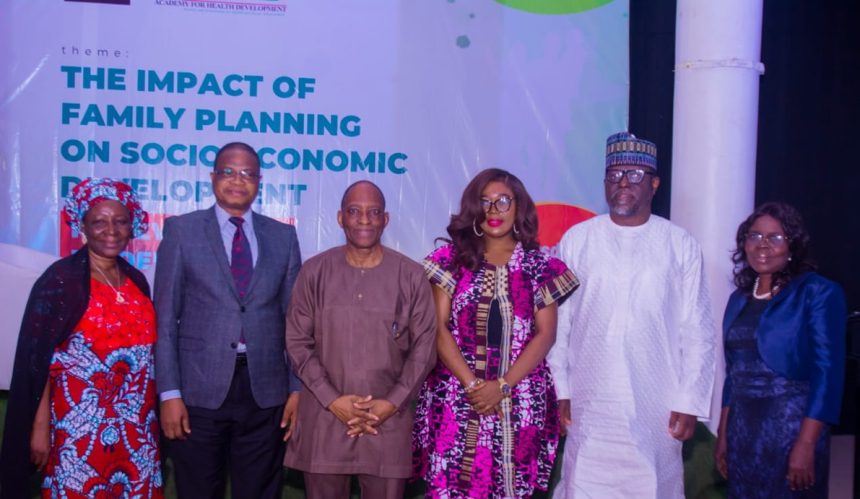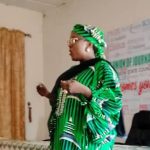Experts in family planning services have decried the contraceptive commodity funding gap in Nigeria, which, according to them, is estimated to be 27.4 million US Dollars as of March 2025.
They made this known at a one-day sensitisation programme themed, “Dissemination Programme on ‘The Impact of Family Planning on Socio-economic Development: New Evidence’ held in Lagos.
The programme was organised by the Academy for Health Development (AHEAD) and the Family Planning Impact Consortium.
The lead expert, Professor Adesegun Fatusi, a renowned Professor of Community Medicine and immediate past Vice-Chancellor of the University of Medical Sciences (UNIMED), Ondo, advocated for improved investment in family planning services.
Fatusi, who doubles as President of the Academy for Health Development (AHEAD), Ile-Ife, who spoke on behalf of the experts disclosed that, “an investment of 1 million US dollars would enable over 65,000 women and couples to receive modern contraceptive care, thereby averting 15,455 unintended pregnancies, 6,044 unplanned births, and 6,321 unsafe abortions as well as prevent the death of 83 women and girls”.
He added, “New research evidence generated by the Family Planning Impact Consortium indicates that each additional $1 investment in family planning would yield $2 of cost savings in pregnancy-related and newborn care. The evidence from the Consortium shows that investment in Family Planning contributes to social and economic growth of countries, and family planning improves women’s likelihood of getting a paying job.
Despite some advancements recorded over the past decade, the meeting said “Nigeria’s family planning indicators remain suboptimal with the modern contraceptive prevalence rate still only 15 per cent, the level of unmet contraceptive needs still as high as 21 per cent and only 45 per cent of FP demands being met by modern methods. The gathering recommended, among others, high-level advocacy and engagement with critical stakeholders to address challenges related to low budgetary allocation to FP and contraceptive commodity procurement and non-release of allocated funds; renewal of co-financing agreement with UNFPA by the Federal Government; increased efforts regarding the domestic mobilisation of resources for the family planning agenda from the private sector; support the academic and research community and institutions in Nigeria, particularly those with programmes in Demography and Economics, to embrace the challenge of studying the impact of family planning on social and economic development, etc.”
The experts who made this disclosure said “the withdrawal of USAID has significantly reduced contraceptive availability in Nigeria”.
They added that “while the federal government has initiated some efforts towards closing the gaps created by USAID’s withdrawal from Nigeria’s health system and related development field, the picture is not clear yet.” At the moment, there are additional concerns about the future of Family Planning (FP) supplies in Nigeria such as the use of Presidential Initiative for unlocking the Healthcare Value Chain (PVAC) for contraceptive funding rather than the usual mechanism of the National Contraceptive Basket Fund, the reported reduction in the Federal Government of Nigeria’s budget for FP from N2.225 billion in 2024 to N66.39 million in the 2025 budget, the delay on the part of the Federal Government to renew its co-financing agreement with UNFPA, among others, would further compromise contraceptive availability.
Experts at the event include, among others, Professor Rhoda Mundi (Past President, Population Association of Nigeria and member of the National Population Commission Advisory Group), Dr Akin Akinbajo of UNFPA, Dr Ahmad Abdulwahab, representative of the Director General, Nigeria Governors Forum; Professor Olalekan Yinusa (Development Economist and former Commissioner for Economic Planning, Budget and Development, Osun State; and Professor Funmilayo Banjo (Demographer and former Director, Centre for Gender and Social Policy Studies, Obafemi Awolowo University), and officials of several State Ministries of Economic Planning.
ALSO READ TOP STORIES FROM NIGERIAN TRIBUNE
WATCH TOP VIDEOS FROM NIGERIAN TRIBUNE TV
- Let’s Talk About SELF-AWARENESS
- Is Your Confidence Mistaken for Pride? Let’s talk about it
- Is Etiquette About Perfection…Or Just Not Being Rude?
- Top Psychologist Reveal 3 Signs You’re Struggling With Imposter Syndrome
- Do You Pick Up Work-Related Calls at Midnight or Never? Let’s Talk About Boundaries







